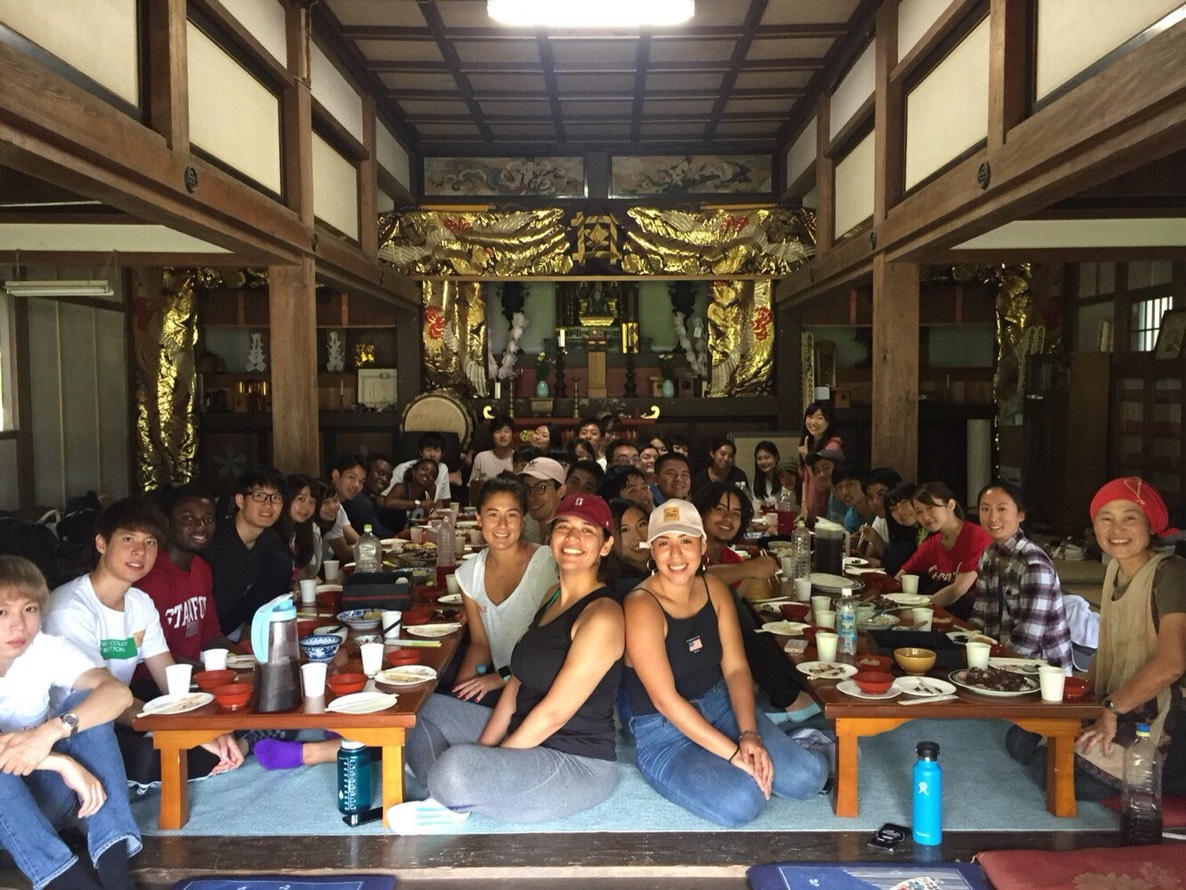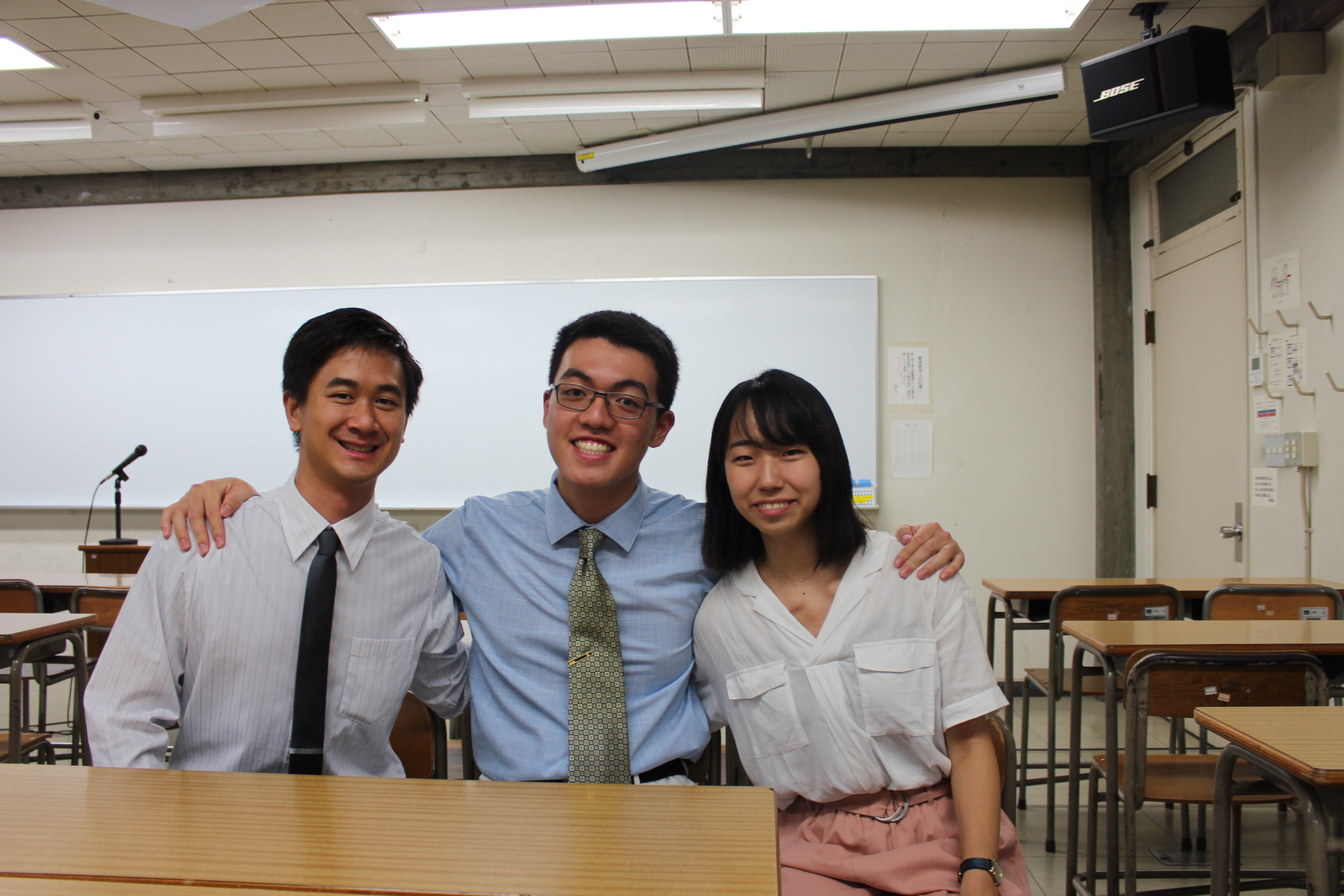Stanford × SKIP
SKIP (Silicon Valley Keio International Program) is an exchange program between Stanford University and Keio, organized by members of Keio I.I.R (Institute of International Relations). They host a two-week study program in Tokyo annually in September. This program consists of a homestay, a short trip to other cities of Japan, corporate visits, discussions, and other programs, both academic and entertainment.
The theme of this year is “Have your own Japan ~ Post it on your Lifestagram”, which strengthens the importance of not stereotypes that you can capture through the Internet but the firsthand experiences you can get through this program.

This time, the writers of Mita Campus visited the farewell party of the program and interviewed two Stanford students who had enjoyed the two-week program and a Keio student who organized it.
Before the interview, they had nearly completed the two-week program; walking around Asakusa, going to the Edo museum and Shibuya, a short trip to Tochigi Nikko to make mochi, hearing speeches from different companies about how they can carry traditions into a new era, as well as company visits to the Hoshino resort, discussions with Keio students, and so on.

Max Wang, a computer science student who graduated from Stanford this past June, joined this program as he wanted to communicate with Keio students, visit diverse Japanese companies, and experience Japanese life. Sean Chen, a sophomore student majoring in economics, applied since he was eager to get to know Keio students.
By staying with his host family, Max noticed how clean and tidy everything is in Japan. For example, when people take baths here, people separate the bath water from the shower water so that everyone can share the same bath water, and they shares the same space and water with strangers in hot springs as well. He pointed out that in Japan there is a prevalent sharing culture among family members and even in public areas compared to the US, where people value privacy.
Sean added that daily life in Japan is more integrated with technology and ordinary people have a lot of high-tech things in terms of train transport, grocery shopping, and housing. Though Silicon Valley has a lot of technologically advanced innovation, he found the level of how much technology factors into the daily lives is lower than Japan.
The American students feel that you can find Japanese culture in the U.S. and everybody knows at least the surface level of it ever since it invaded American pop culture especially in terms of animation which usually is a gateway for American people to get interested in Japanese culture.
However, they also feel that in terms of social phenomena or way of thinking, it is incredibly different, and you cannot find the Japanese way of thinking in the U.S. One example is how polite the service in Japan is compared to the U.S. Thus, they were thankful for the Japanese organizers for giving them such a multi faceted experiences.
On the other hand, as an organizer of this program, Yuri Matsubara also spent a fulfilling time with them. What made her surprised most was that every Stanford student did not build a wall against new things, and instead they were willing to try everything she recommended.
Besides, they were passionate in asking questions like when they were given a lecture about policies for LGBT and the homeless from the head of Shibuya ward. Without support from the alumni of the Institute, she said that they would not have been able to give such a special program to the students, while it was also a challenge to look for host families and to organize the trip well. She concluded by saying thanks to all of those who supported this program.
Written by Pierre-Yves Mailard, Yutaroh Kumagai
Edited by Ryoko Shibata


